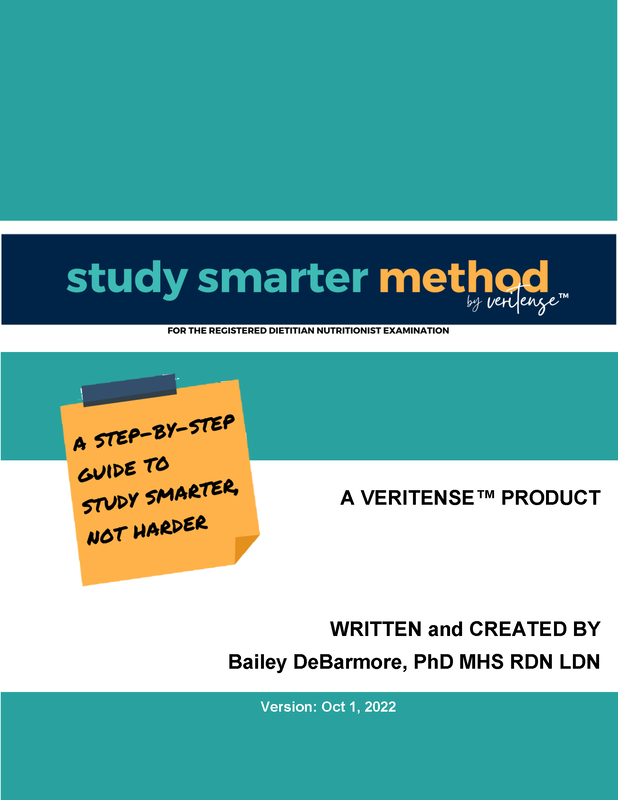|
Self-employment is on the rise, even in times of unemployment. Many dietitians know early on in their education that they’ll open a private practice, providing nutrition counseling outside of traditional healthcare settings. In theory, going it alone offers a huge amount of opportunity, with the only limits being your drive and determination to succeed. However, being a freelancer or business owner isn’t all sunshine and rainbows - far from it, in fact. Whether you’re a freelance nutrition coach, your own boss in private practice, or making money from your cooking blog, there are certain risks that go along with self-employment that we don’t often think of when job-hunting. Being prepared and having some security in place is important before you “take the plunge” into the world of “permalancing” and self-employment. financial crisesAll can be going exceptionally well in your freelance career, but it only takes a client or two to not pay you for your work and you could be in serious trouble. Cash flow is critical if you are going to survive self-employment, so it’s important to put aside emergency money and overall manage your finances responsibly. Be wary of inconsistent cash flow, and handle large sums with the future in mind. Looking to borrow from your retirement savings? Has your business been affected by COVID-19? The writers at Interest.com prepared an in-depth analysis of the CARES Act to help you decide if you should borrow from your retirement. They provide alternative ideas if you need cash, including emergency options and relief programs. Find out more in their guide, Should You Dip Into Your Retirement Savings During the Pandemic? by clicking the link. financial managementOne aspect of self-employment that differs from a typical day job are the financial aspects. How will you file for taxes, separate your ‘salary’ from business profits, and write-off business-related expenses? Understanding these money management principles can make or break any freelancer or private practice owner. You can learn more in my post "Handling Your Own Finances as a Small Business Owner". You may also like these resources:
The experts at Creditcards.com created a guide for those who are self-employed during this unprecedented time. You'll learn about the options available and specifically tax breaks and extensions, unemployment benefits, CARES Act resources, and financial planning strategies in their in-depth guide on Financial Management for the Self-Employed during COVID-19. If you want to know more about the changes to the 2020 tax filing, the Simple Dollar provides a comprehensive guide on filing your 2020 taxes - including everything you need to know about the filing extension to July 15, 2020. Experts recommend that individuals take advantage of this additional time to better understand the tax benefits and exemptions available for their unique situation. The Simple Dollar Guide to Filing 2020 Taxes will help you navigate the deadline extension and understand the tax payment deferrals.
If you want to learn more about taxes for freelancers worldwide, you can check out this Breakdown Guide on Taxes for Freelancers to find out what countries have the best tax laws for freelancers. It also provides general info on forms and deductions you should know about as a freelancer in the US and how to file your taxes (on your own, or with a professional). health insuranceSimilar to financial management, you need to consider the health aspects of your job. Health insurance is typically included in an employment packet along with retirement funds and vacation time. But if you’re self-employed, how will you meet those same goals? Taking the right steps to have everything in place means when something goes wrong, it won’t go all wrong. Having an emergency fund isn’t just for dry months, but also for personal emergencies. For example, what will you do after an auto accident? You may not be able to work for several months, draining your savings without bringing anything else in. overstretching yourselfAs a rule, small businesses are more adaptable, nimble and agile - they can perform many of the functions of a larger business with fewer people. But as the business owner - or the freelancer going it alone – it can be easy to stretch yourself too thin. Focus on your strengths and develop them to their fullest instead of trying to do it all. Setting goals for your business means knowing what to say yes to, and what to pass along to third parties. selling yourself shortDon’t sell yourself short. In the early stages of self-employment, it’s tempting to take on low-paid work. While you think you’re getting the ball rolling, you may get trapped in a cycle of gigs that take up too much time for too little reward. Set your goals and know your strengths, and stand firm to an established pricing list.
0 Comments
Your comment will be posted after it is approved.
Leave a Reply. |
a blog about health, wellness, nutrition, and fitness from an epidemiologist / dietitian with personal trainer experience
Stay up to date on productivity tips and active learning techniques
Like what you read?
categories
All
|



_250px.png)



 RSS Feed
RSS Feed
